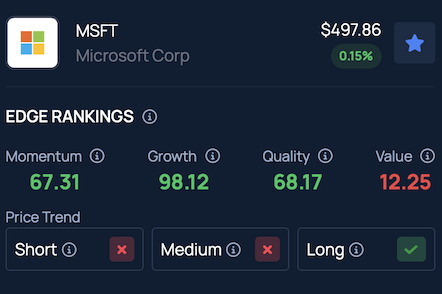
Jim Cramer has raised fresh doubts about the reliability of AI chatbots like OpenAI's ChatGPT after experiencing inconsistent answers firsthand.
Cramer Questions AI Credibility After Inconsistent Responses
On Sunday, CNBC host Cramer took to X, formerly Twitter, to share his frustration with AI chatbots.
He said he asked ChatGPT for data on single-family home prices over the last six years, but each time he rephrased the question, he received different numbers.
"It’s so hard to believe how any serious entity really trusts the chatbots yet," Cramer wrote, calling out their dependence on "inaccurate sources."
His comments reflect a growing concern among professionals about the reliability of AI-generated information in fields that demand precision, such as finance and economics.
See Also: Tesla’s $1 Trillion Illusion: Elon Musk’s Pay Package And The Robotaxi Myth
Experts Say Data Fragmentation Fuels AI Hallucinations
AI experts say Cramer's experience highlights a broader issue known as "hallucination," where models like ChatGPT, Microsoft Corporation's (NASDAQ:MSFT) Copilot and others produce responses that are nonsensical or factually wrong.
Speaking with Benzinga, Matthijs de Vries, founder of data infrastructure firm Nuklai, said the underlying problem stems from fragmented access to verified data.
"I don’t believe hallucinations are caused solely by poor data infrastructure, that would be an oversimplification," he explained. "That said, insufficient or fragmented access to real-time, verifiable data makes the problem significantly worse."
Yann LeCun Explains Why Chatbots Go Off Track
Earlier, Yann LeCun, often called the "Godfather of AI," described hallucination as a natural result of how large language models work.
"Because of the autoregressive prediction, every time an AI produces a token or a word, there is some level of probability for that word to take you out of the set of reasonable answers," LeCun said on the Lex Fridman Podcast.
OpenAI's Spending Spree Raises New Questions
Meanwhile, OpenAI's massive spending plans have raised concerns about its long-term stability. CEO Sam Altman revealed the company has $1.4 trillion in commitments over eight years for data centers and AI chips.
While OpenAI aims to hit a $20 billion annualized revenue run rate by the end of 2025, Altman admitted it might need to go public to sustain growth — drawing comparisons to the dot-com era's high-stakes expansion.
According to Benzinga's Edge Stock Rankings, the chipmaker ranks in the 98th percentile for Growth and 68th for Quality, highlighting its solid performance relative to industry peers.

Read More:
Disclaimer: This content was partially produced with the help of AI tools and was reviewed and published by Benzinga editors.
Photo courtesy: katz / Shutterstock.com







